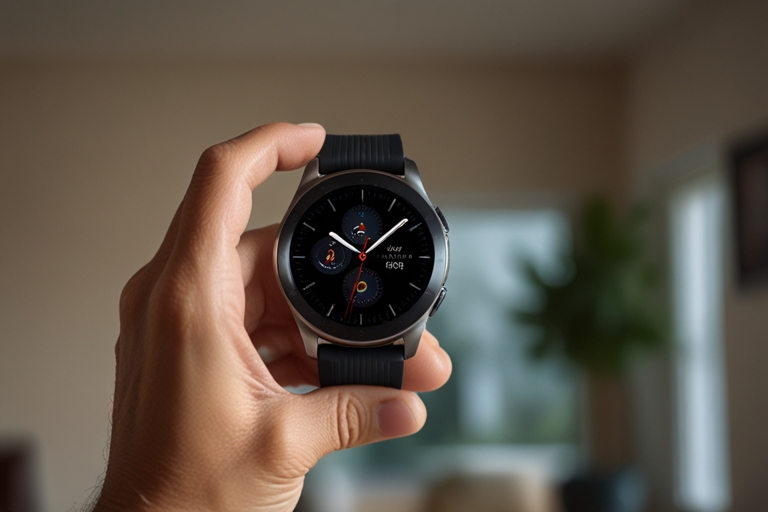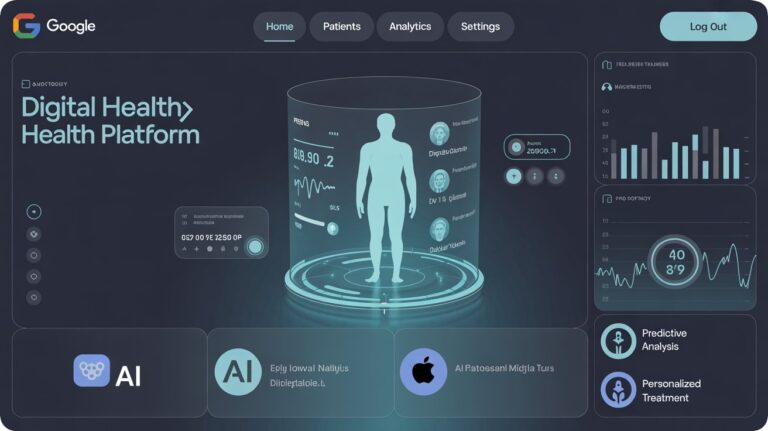
TL;DR
- Samsung aims to grow its wearable health tech, targeting aging users and rising healthcare costs.
- The Galaxy Watch update will include new antioxidant level tracking, sleep advice, and a running coach.
- Samsung holds about 6% of the global smartwatch market versus Apple’s 20%.
- The company bets on home health integration via appliances and AI-powered tools.
- Samsung’s watches don’t currently support iPhones, limiting their reach compared to Apple.
- AI and smart glasses are next frontier health tech Samsung is exploring.
Samsung Targets Digital Health Market Amid Aging Population
With healthcare costs projected to rise in 2025, Samsung is strategically positioning its wearables to support older adults who want to “age in place” — managing health independently at home. Hon Pak, vice president of Samsung’s digital health team, highlights this shift: “You have an aging population with increasing prevalence of chronic diseases, and costs going up. Care is moving to the home.”
Samsung is leveraging this trend to catch up to Apple in the wearable space. Its upcoming Galaxy Watch update, rolling out as a beta this month for Galaxy Watch 5 and newer, will enhance health tracking features focused on preventive care. Pak sees Samsung’s existing home appliance ecosystem as a unique advantage to integrate digital health more deeply into daily life.
Samsung vs. Apple: Market Share and Strategy
Despite being the world’s largest smartphone maker, Samsung trails Apple in smartwatches. According to the International Data Corporation (IDC), Samsung held roughly 6% of the global smartwatch market in Q1 2025, while Apple commanded about 20%.
Apple’s marketing has successfully positioned the Apple Watch as a “must-have” smartphone companion, says IDC research manager Jitesh Ubrani. Samsung’s strategy emphasizes health insights, like tracking antioxidant levels and sleep quality, to differentiate itself and appeal to health-conscious users.
New Features: Antioxidant Tracking and Running Coach
Samsung’s smartwatch update introduces a novel way to measure antioxidants by estimating beta carotene levels through LED sensors shining on the skin. Users press the sensor on the back of the watch after removing it to get an estimate of their antioxidant status, based on clinical trials comparing blood measurements.
The update also adds bedtime recommendations and a running coach feature that creates personalized training plans to help users meet fitness goals. This directly competes with Apple’s recent launch of its own Workout Buddy feature.
AI Health Tools and Future Innovations
Pak mentions Samsung is developing an AI-powered health chatbot to assist users but did not provide details as it’s not yet publicly announced. Apple is reportedly working on similar AI health tools, according to Bloomberg.
Beyond watches, Samsung sees promise in AI-powered smart glasses that could analyze meals in real-time — identifying allergens or monitoring eating speed. Developers already use AI models like ChatGPT and Google Gemini to analyze food photos for nutritional content.
Pak states, “I don’t think it’s a technology problem. It’s just about packaging the capabilities we have today.” Samsung is also building smart glasses running on Google’s Android XR software as part of this vision.
Compatibility Challenge: Samsung Watches and iPhones
A key limitation for Samsung is that its smartwatches no longer support iPhones, unlike Apple’s seamless integration with its own devices. This restricts Samsung’s potential market share, since Apple controls nearly 20% of the smartphone market.
Pak did not rule out renewed cooperation with Apple, saying, “There are active discussions, but no timing decision has been made.”
Market Overview: Smartwatch Market Share Q1 2025
| Company | Market Share Q1 2025 (%) | Notes |
| Apple | 20% | Market leader with strong ecosystem |
| Samsung | 6% | Focus on health features, home integration |
| Others | 74% | Includes Fitbit, Garmin, Oura, and others |
The Road Ahead: Digital Health as Differentiator
Samsung’s push into preventative health features signals a broader shift in wearables—from simple activity trackers to holistic health companions. As healthcare costs rise and chronic diseases increase with aging populations, integrating health monitoring with everyday home devices may become critical.
Samsung hopes that combining AI, smart appliances, and next-gen wearables will carve out a strong niche, even as it continues to compete with Apple’s dominant position.






